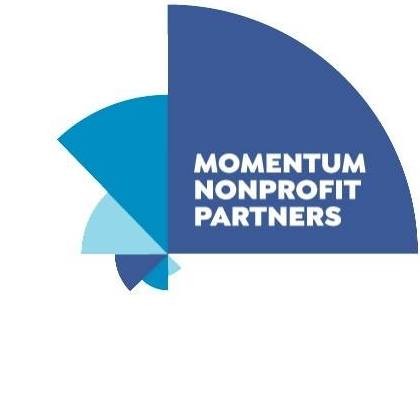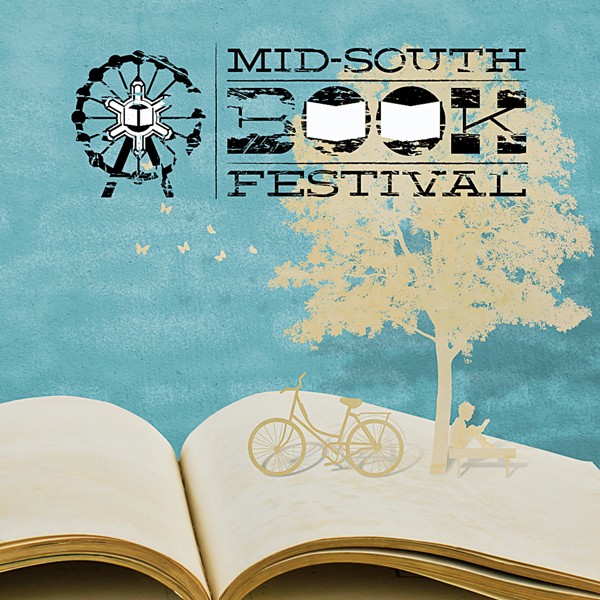 Momentum Nonprofit Partners
Momentum Nonprofit Partners
Kevin Dean
Nonprofits across Memphis have lost an estimated $32 million to the effects of the coronavirus.
That’s just the immediate loss, according to Kevin Dean, chief executive officer of Momentum Nonprofit Partners, a resource hub for nonprofit organizations in the Memphis area. The long-term losses are surely going to be much bigger.
Arts organizations have been hit particularly hard, Dean said, as many of them rely on performances or events — all of which have been canceled because of stay-at-home orders. Other organizations that maybe aren’t working on the front lines of the virus response are hurting, too, as donors have either stopped giving to save money or have pointed their donations to those organizations on the front lines.
Dean said Momentum responded early to the coronavirus pandemic, even though some didn’t take them seriously in the beginning. But thanks to that early response, Momentum has been able to stay ahead of the curve for Memphis nonprofits.
We caught up with Dean for a wide-ranging discussion about the health of the nonprofit community now and how Hurricane Katrina informed some of his response to the virus. — Toby Sells
Memphis Flyer: How did Hurricane Katrina help prepare you and your organization for the coronavirus outbreak?
Kevin Dean: When I was 25, I got promoted to be the community services manager at Volunteer Memphis. We were written into the Emergency Management Agency (EMA) emergency plan. Any time there was a disaster, we would handle the volunteer coordination.
I was two weeks into that new job, still learning what I was doing. And I wasn’t completely sure of what I was doing. But then, Hurricane Katrina happened, and it was like, “Kevin, go run this volunteer clearinghouse for the EMA.”
There were somewhere around 50,000 people who came to Memphis, and a lot of them didn’t have shelter and they needed supplies and things, and it was a mess.
Through that, I learned several things — one, about preparation, and the other, about maintaining relationships and managing egos. There were a lot of egos.
I remember I gave an interview with The Commercial Appeal. This other woman came into the room and took over the interview. The reporter was completely uninterested in talking to her. She was there because she wanted to be in the news. I didn’t care whether or not I was in the news. I just wanted to get the right information out.
The communication piece is also important. It’s important for there to be an information clearinghouse.
[During Katrina] we had lots of people looking for information. “How do I volunteer?” But also nonprofits who were saying, “I need volunteers. Where can I find them? What do I do now?” This was pre-social media, so it was even harder to mobilize people very quickly without Twitter and Facebook.
MF: When did you become aware of the virus and what it could bring?
KD: I went to Seattle in late January. I heard rumblings about it. It was already in the news there. My friend who lives there had brought it up. At the time, it sounded like a virus, just like, “Oh, no! I don’t want to get a cold.”
When I got back, I started seeing it more in the news. And you know, that’s when [President Donald Trump] shut the country off to travel. I was watching the news and seeing how China was responding. It was obviously a big deal. But here, it wasn’t becoming the big deal that it is now. I think there wasn’t enough information.
I started thinking, well, what is this? What could this possibly do? I started getting emails from national organizations … and they kept talking about it. But it was almost like a sidebar. But I was thinking there’s something going on here.
Then, about two months ago, I went to [Washington D.C.] for a conference, and that’s when it was starting to get bad. I had hand sanitizer with me, and I typically don’t have hand sanitizer with me. But I knew something was going on.
I emailed the staff and said, “Hey, we need to think about what this could potentially do for nonprofits, including us, and how we’re going to respond because we’re sort of the clearinghouse of information for nonprofits.”
I don’t think the staff necessarily took it seriously. “Oh yeah, you know, there’s a virus. Great.” We just dealt with flu season, so they didn’t really take me seriously.
I emailed our Mid-South Philanthropy Network. I said, “Hey, we need to talk about COVID-19. We need to talk about this, and we need to talk about some sort of collaborative funding strategy because I think this is the next big disaster.”
I got one foundation that responded and said, “We might be interested.” Two weeks later, I’m like, this is going to happen. This is getting bad. You can’t stop this pandemic from happening, and nobody’s paying attention like they should.
To the staff, I said, “We need to model the way for other nonprofits. We need to be proactive, and if I’m wrong, I’m wrong. I’d rather keep people safe.”
When you think about Momentum, we’re hosting thousands of nonprofit employees who come into our offices every year, and they work with really vulnerable populations. So if we were to become a hot spot for a coronavirus outbreak, we’re not only harming our staff and their families, but also the nonprofit employees and their families and also the vulnerable populations that they were interacting with every day.
I decided we’re going to close. Right after that, some people said, “We’re going to be closed for a week or two weeks.” I had already decided we were going to be closed until May 1st because I knew it wouldn’t go away that quickly.
Before all that happened, I knew that we were going to have to probably go to teleconferencing, so I invested in Zoom Pro.
We do calendaring for all of our trainings and all of our events six months in advance, typically. I put all of that on hold. If you knew me better, you’d know that that kind of stuff drives me crazy. I’m a huge planner, and the fact that I put it on hold should have said something.
When we closed, people responded in various ways. Some nonprofits said, “OK, Momentum is doing it. So do we need to do it?” Others were like, “What the hell are they doing now?”
MF: How else did this change how Momentum responded?
KD: We’re built to be an information hub for nonprofits. That’s what we’re there for. So we were able to easily pivot very quickly into the online world. Immediately, I started getting information from these national sources and other organizations across the country because I subscribed to all their newsletters. Organizations in some of these bigger cities were already creating resource lists for COVID-19. Some of these things we weren’t even thinking about yet in Memphis because it hadn’t hit us like it had them. So I followed in their footsteps in sort of what we needed to be pushing for.
The staff really had a challenge because we have all these initiatives happening this year. We have a big grant with the government to mobilize people through nonprofits [to fill out] the census. The census is still happening, and some of this stuff still has to continue. [The virus] is making it even harder to do our job.
Also, people really rely on us as the professional development organization for the nonprofit community. Part of that professional development piece that people show up for is the camaraderie piece and the peer networking. That’s really hard to do when you’re in a Zoom meeting.
The first week when it happened, we closed that Friday, and by Monday, everybody else was attuned to it and started closing their doors. We moved to Zoom that next week.
We had a wait list to get into our COVID-19 information session, which we are doing every week now. People were just lost in trying to figure out what to do. I remember the panic in so many people because they just weren’t getting information from the federal government. It was absolute bullshit what was happening, and we were getting such misinformation.
 Momentum Nonprofit Partners
Momentum Nonprofit Partners
MF: What were you doing to get further prepared?
KD: I’m getting behind the scenes. I’m getting information like knowing there will be a stimulus bill. They’re already talking about this.
I was getting calls form people saying, “Should I lay off my staff? What should I do about this fundraiser? Should I cancel it or not?”
Nonprofits, we have an unhealthy relationship with special events. So when you’re having to cancel your biggest special event where you make $100,000, that’s multiple people’s jobs, and it’s multiple programs, and that’s multiple people being fed. So we don’t take that lightly.
I calmed people down about laying people off. I talked to at least two or three organizations about about laying off half their staff just because I knew that there was a stimulus coming. I thought they needed to play the wait-and-see game.
What’s unfortunate is that a lot of organizations don’t have a rainy-day fund, which they should, especially for things like [this pandemic]. I don’t feel like we learned our lessons from Hurricane Katrina. Because if you weren’t the Red Cross or in an organization that was on the front lines of Hurricane Katrina, you saw some financial fallout from that because people redirected their giving or stopped giving because they were worried about their own jobs and the economy.
The same thing is happening right now. A lot of people were blindsided by this when they really shouldn’t have been if they’d lived through Katrina, especially if they’re working in the nonprofit [sector]. This is all happening again, just in a very different way.
One thing I have seen on the philanthropic side, on the nonprofit side, and on the government side, people can’t get out of that mentality of “but we’ve always done it this way.” Even during this crisis, people are saying, “We have a process.” If they don’t have an emergency plan in place or a contingency plan, they feel like they have to continue what they’re doing.
The world’s not going to change for them. They’re going to have to change for the world, and that takes a lot of leadership, and it takes a lot of thought and planning.
MF: How are nonprofits responding?
KD: Nonprofits have fallen into two camps. Some say, “We’re going to continue to do what we have to do as long as we can. Then we’re going to panic when we can’t anymore.” Then there are those who’ve said, ”OK, this is happening. We already have a plan or we’re gonna stop, push pause, and pivot.”
[Nonprofits want] to be the hero in this situation, but they can’t be. We have to collaborate, and we have to coordinate our services. I’m glad that Momentum exists because we’re trying to coordinate people’s efforts. We can say, “The government’s already doing that, or the Red Cross is already, or this person has free space available if you want to do a food distribution site.” Otherwise, people will be grasping for information.
The Red Cross, MIFA, and (the Mid-South Food Bank), they absolutely need a ton of money right now. But there are also smaller organizations that are working with the elderly or the homeless or people who are hearing impaired or trans youth who are homeless. They also need that support. We’re really advocating for the small organizations to make sure that they’re included in the relief fund.
So far, we’ve had about 300 nonprofits that have [told us] what their immediate needs are. We’ve been sharing that with other foundations who haven’t contributed to the [Shelby County COVID-19 Relief Fund], just so they know what’s up.
When all this happened, I was averaging about 100 emails an hour. No joke. No exaggerating. I was just trying to keep up. So I was deferring a lot to the staff. The staff has been working as hard as I have, and they definitely need to be commended. But now, [my emails] have gone down to about 20 to 30 an hour.
MF: How will this affect nonprofits in the future?
KD: In the immediate impact, people are going to lose money from events and sponsorships and from individual donors. But I think long-term, organizations are going to have to figure out how they’re going to continue these services — because this is not going away like people think it is or how Trump says it’s going to. We’re going to have to really think at least through 2020 about how we’re doing our businesses differently.
MF: How are nonprofits doing out there?
KD: I think it depends on the sub-sector. The arts have been hit very, very hard by this because they’re not on the front lines. They’ve had to cancel a lot of their [performances]. A lot of arts organizations rely heavily on earned income from their performances. All of that’s now decimated.
Then you have a lot of the organizations, big and small, that are having an increased need for services. We have these smaller organizations that we funded last week through the relief fund.
One of them works with single moms. [The director of the organization] was talking about how they need extra things right now because a lot of [the single moms being served] are working in fast food or things like that. They’re being furloughed. So they have these extra needs, and they have utility assistance needs and things like that.
There are organizations that are working very, very, very hard on the front lines, and a lot of them don’t know where their next paycheck is going to come from because funding is so all over the place right now.
Across the board, all nonprofits are going to suffer in some way. They’re also going to see an increased need for funding.
MF: What can people do?
KD: I would encourage people who are out there to give more. There’s a tax incentive now through the CARES Act. Now, up to $300 of your donations this year are tax deductible. I would encourage everybody to give. If you have $300 to give, give it to your favorite organization — because they’re suffering.
We’re also going to see some organizations that aren’t really struggling, maybe not right now. But in two to three months, we’re going see some organizations talking about whether or not they should stay open. That’s scary.
